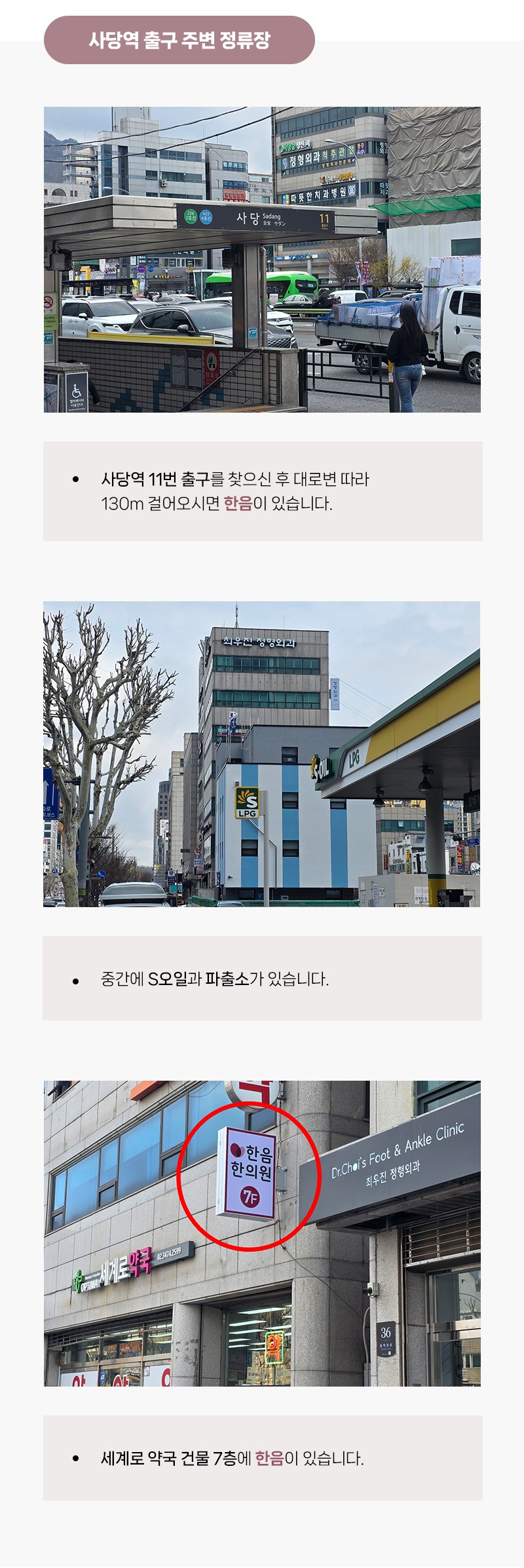Haneum
의학 논문
한음이 발표한 의학논문입니다.
불면장애 환자의 한의치료 효과 및 심리척도 변화간 상관성 분석: 후향적 관찰 연구
초록
Objectives: To examine effect of Korean medical treatment on patients with insomnia and correlations among changes in psychological scales before and after treatment.
Methods: Medical records of 38 patients diagnosed with insomnia based on DSM-V who received Korean medical treatment (herbal-medication, acupuncture, Korean psychotherapy) for at least 8 weeks were retrospectively reviewed. Psychological scales including Insomnia Severity Scale (ISI), Beck Depression Inventory-II (BDI-II), State-Trait Anxiety Inventory (STAI), Beck Anxiety Inventory (BAI), and State-Trait Anger Expression Inventory (STAXI) were measured every four weeks and analyzed.
Results: After eight weeks of treatment, ISI, BDI-Ⅱ, BAI, STAI-X-1/2, and STAXI-S/T showed statistically significant decreases. Psychological scale pairs that showed a statistically significant correlation were ISI and BDI-IIㆍSTAI-X-1ㆍSTAI-X-2ㆍTA, BDI-II and BAIㆍSTAI-X-1ㆍSTAI-X-2ㆍAX-I, BAI and STAI-X-1ㆍSTAI-X-2ㆍSAㆍTA, STAI-X-1 and STAI-X-2, SA and TA, and TA and AX-I. In women, the improvement of AX-C was high. The improvement in AX-I score was significant when the disease duration was more than one year. A lower pretreatment BAI value predicted a greater decrease in ISI score after treatment.
Conclusions: Korean medical treatment including herbal medicine, acupuncture, and Korean psychotherapy was effective in improving insomnia symptoms and accompanying symptoms such as depression, anxiety, and anger. In the future, more in-depth follow-up research is needed on the mechanisms by which various psychological problems (depression, anxiety, anger, etc) cause and worsen insomnia and the psychological symptoms secondary to insomnia.
Objectives: To examine effect of Korean medical treatment on patients with insomnia and correlations among changes in psychological scales before and after treatment. Methods: Medical records of 38 patients diagnosed with insomnia based on DSM-V who received Korean medical treatment (herbal-medication, acupuncture, Korean psychotherapy) for at least 8 weeks were retrospectively reviewed. Psychological scales including Insomnia Severity Scale (ISI), Beck Depression Inventory-II (BDI-II), State-Trait Anxiety Inventory (STAI), Beck Anxiety Inventory (BAI), and State-Trait Anger Expression Inventory (STAXI) were measured every four weeks and analyzed. Results: After eight weeks of treatment, ISI, BDI-Ⅱ, BAI, STAI-X-1/2, and STAXI-S/T showed statistically significant decreases. Psychological scale pairs that showed a statistically significant correlation were ISI and BDI-IIㆍSTAI-X-1ㆍSTAI-X-2ㆍTA, BDI-II and BAIㆍSTAI-X-1ㆍSTAI-X-2ㆍAX-I, BAI and STAI-X-1ㆍSTAI-X-2ㆍSAㆍTA, STAI-X-1 and STAI-X-2, SA and TA, and TA and AX-I. In women, the improvement of AX-C was high. The improvement in AX-I score was significant when the disease duration was more than one year. A lower pretreatment BAI value predicted a greater decrease in ISI score after treatment. Conclusions: Korean medical treatment including herbal medicine, acupuncture, and Korean psychotherapy was effective in improving insomnia symptoms and accompanying symptoms such as depression, anxiety, and anger. In the future, more in-depth follow-up research is needed on the mechanisms by which various psychological problems (depression, anxiety, anger, etc) cause and worsen insomnia and the psychological symptoms secondary to insomnia.























